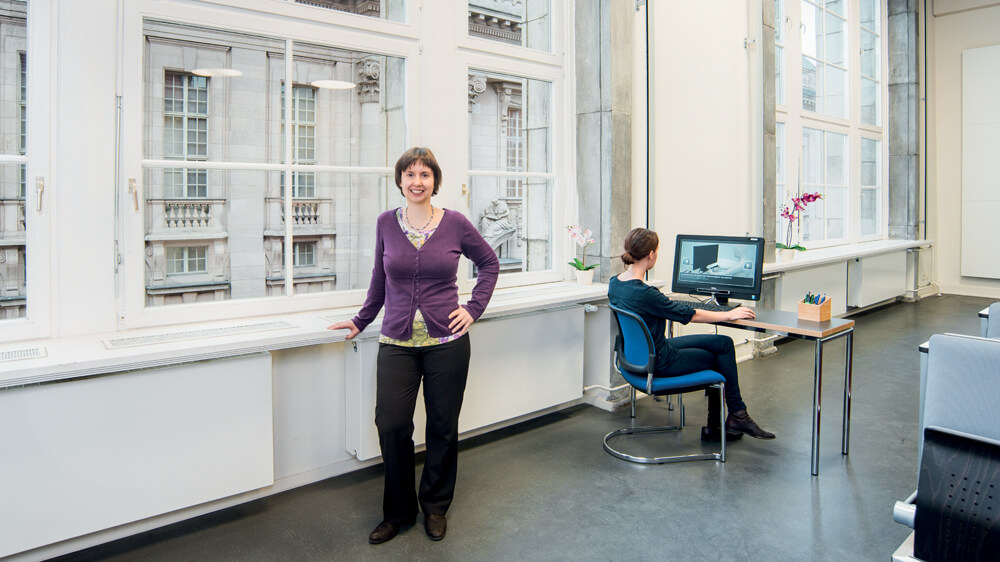
Brain City Berlin Ambassador: Prof. Dr. Elke Greifeneder (Humboldt-Universität zu Berlin)
Professor of Information Behavior
As a junior professor of information behavior, Elke Greifeneder investigates the way people handle digital information.
What exactly do they know about the flow of information that they spread via email or over social media? Who can access the data? And how is this data analyzed? Prof. Dr. Greifeneder has been teaching at Berlin’s Humboldt University since 2014. Here, she outlines the main focuses of her work.
What are the biggest challenges of information behavior research?
In the future, information science will focus very strongly on a phenomenon called “datafication” which refers to the quantification of life in general, meaning that everything we do is measurable –for example, daily movement on foot or by car.
Who is interested in this data?
American health insurers, for example, because they can adjust tariffs for those who walk a great deal and those who walk very little. Whoever doesn’t provide them with this data about their daily walking has to make a supplementary contribution of up to $500. I wouldn’t want to know which types of data my smartphone constantly sends. And it always sends data. For example, Google Maps likes to receive in-formation from drivers so that they can regularly refine and update their traffic forecasts.
Can society still stop such trends from occurring?
No, they are part and parcel of the digital world. You just have to learn to deal with it. How do I store my data? How can I deal with the data consciously?
Is the data also misused?
That’s what we are investigating. Does a social media user know that their data is being analyzed? Do they know that researchers all over the world are allowed to download their data for studies? To what extent is a Twitter user aware that they are writing a message for the whole world to see and that it can be analyzed? If I sat in a bar and had a chat, nobody would be allowed to sit at the next table and set up a recording device for research purposes: everyone would complain in that situation! However, on Twitter, there appears to be a very similar situation that everyone thinks is okay – particularly as it is stated in the terms of use.
Do people adapt their behavior to new circumstances?
Yes, of course. People are out and about and, with access to the Internet, can search for infor-mation everywhere. It is incredible how rapidly information behavior has changed over the last ten years. One of our main focuses is the investigation into information competence. The key question: To what extent can people evaluate the information they receive and spread?
Which qualities must people have if they want to work in information behavior research?
Above all, you need to be incredibly curious and always want to have another look. Would I get another result if I add another variable to my analysis? The final work of top candidates stands out because these candidates always go the extra mile and question their data and results profoundly. Additionally, you also have to be a good manager in the German research system, because you have to organize a lot.
Why did you decide to change your professorship from Copenhagen to Berlin?
Humboldt University provided me with the opportunity to create my own department of infor-mation behavior. There is nothing of the sort that currently exists in Germany. Indeed, there is already a lot of research into this field, but apart from Humboldt, there are no other institutes of higher education that offer a whole professorship.
What is your impression of Berlin as a research location?
Berlin is a great capital city and a great metropolis, and is a lot less stressful than Paris, for example, which I experienced as a student. The quality of research in Berlin is outstanding. Not only is there room for large specialist fields such as medicine or engineering sciences, but also for small ones such as library and information sciences.